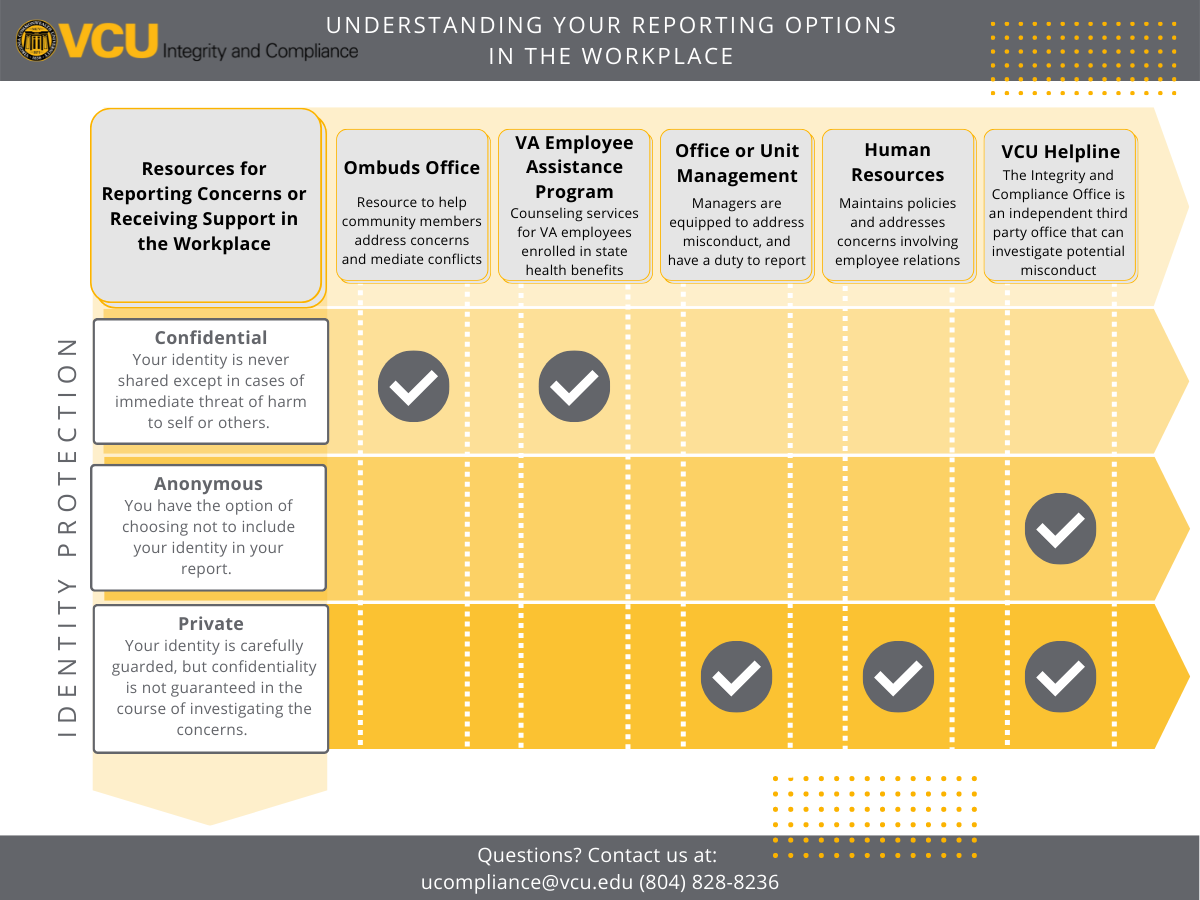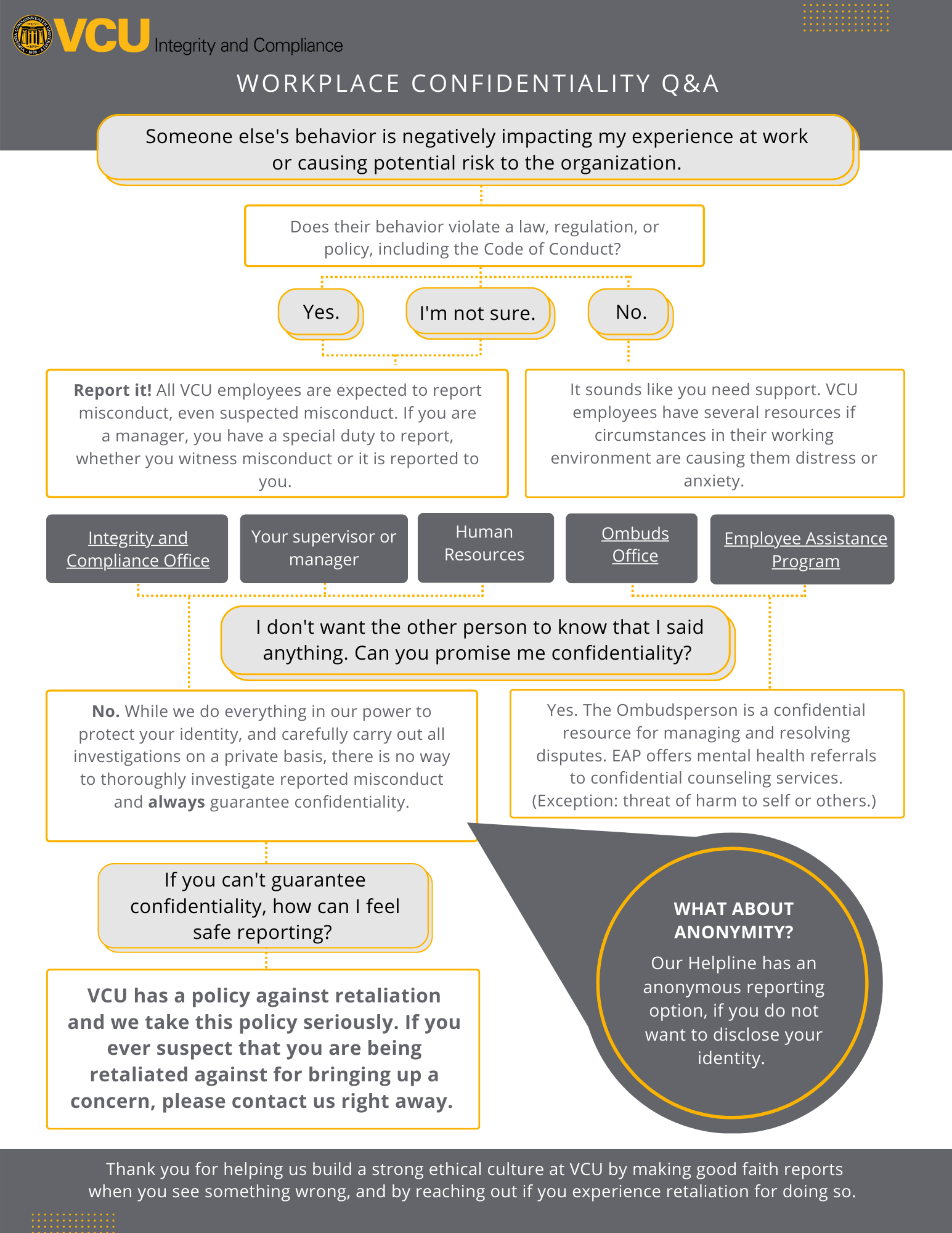Anonymous and Confidential: Not the same thing
Compliance Corner – Issue 1.3

Anonymity is a pretty hot topic right now. If you don’t believe me, just Google it. You’ll find everything from academics debating why there has been a recent surge in anonymity on the Internet to a list of the “anonymity because” reasons people give to reporters of news agencies when agreeing to speak during fact-finding interviews.
Often, people choose to remain anonymous when they need to make a formal review or complaint; in other words, they choose not to reveal their identity. They feel their anonymity will protect them from retaliation or harassment, so they enter into the process feeling “safer” than if they had provided their name. But sometimes, a person starts to file a report – maybe on something they witnessed in the workplace – and the resource they use to make the report says the report will be confidential. Still other resources may say the report will be private.
Anonymous, confidential, private – they’re basically the same thing, right?
Actually, they’re not the same thing, and it’s important to understand the difference, especially if you need to report something. Let’s look at the definition of each word, based on the VCU Duty to Report Policy, then break it down further:
Anonymous: You choose not to reveal your identity.
Confidential: Your identity is never shared with anyone, except when there might be a threat of harm to yourself or others.
Private: Your identity is carefully guarded, but confidentiality isn’t guaranteed. It could be revealed on a need-to-know basis during the course of the investigation.
As you might suspect, even though there may be benefits to remaining anonymous or utilizing a resource that will keep your report confidential, it can have its drawbacks, too. The most obvious is that if you are the only one who witnesses bad behavior, it would be pretty hard for the investigators to find out the truth or to approach the subject of the complaint without that subject guessing who reported it. Still, the resource you contact as an anonymous reporter can’t divulge your name and the resource you contact that promises complete confidentiality won’t, unless there is a threat of harm to yourself or others.
When you make a report to a resource that promises to disclose your identity on a private, or need-to-know-only basis, the team handling that report commits to guarding it from anyone outside the investigative team who does not need to know. So, the subject of the investigation would only learn who filed the report if it was necessary to establish the facts of what happened. Anyone not directly involved in the investigation or the process for deciding consequences based on the investigative findings would not be allowed to learn your identity or any of the details of the case.
If your head is spinning right now, you’re not alone. To make this a little easier, we can look at a table that shows the different options available to VCU faculty and staff when they need to speak up and report a concern, and which ones offer anonymous, confidential and private (“need to know” only) identity protection:

And, if you’d like to see the thought-process behind selecting the resource that would make YOU feel the most comfortable, you might find this handy:

So, anonymous, confidential, private – these terms don’t mean the same thing and may lead to different-looking investigations. But the important thing to remember is that when you decide to speak up, there are several ways to do it, and we are here to help.
For more information on how to report a concern, or if you have questions about this month’s topic, please contact ucompliance@vcu.edu or call the Integrity and Compliance Office at (804) 828-2336.
Infographics by Sara Jones